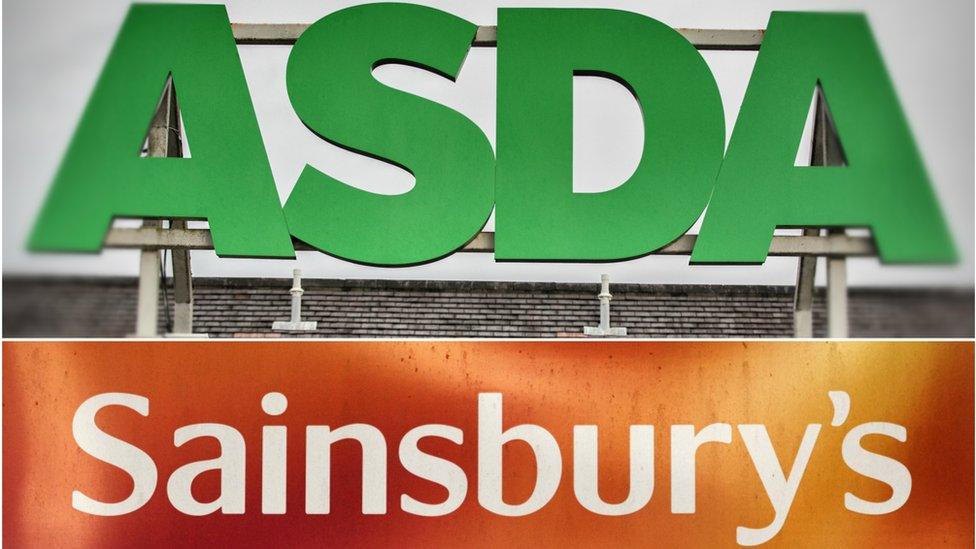Sainsbury's-Asda merger faces crunch decision
- Published
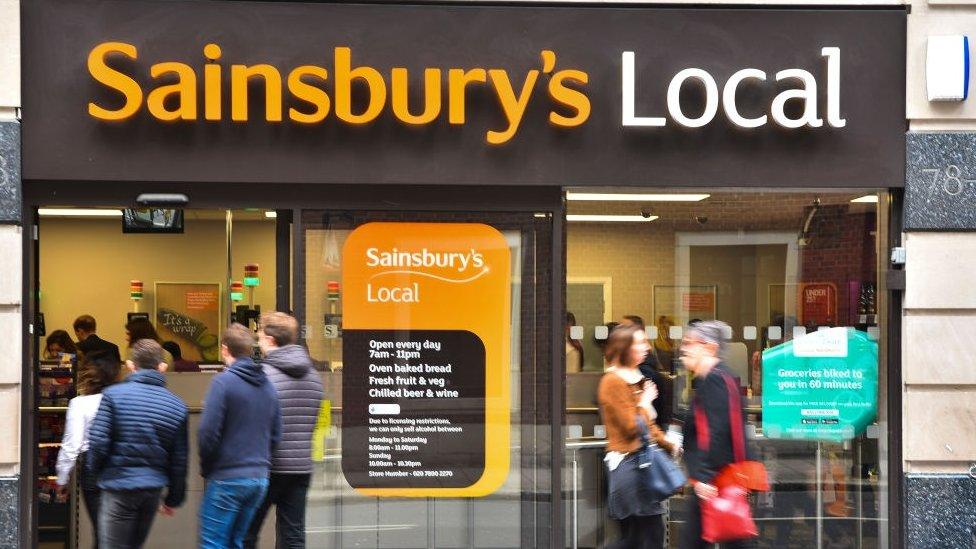
A key decision that could reshape the UK's supermarket sector is due at the end of April, with Sainsbury's and Asda waiting to hear if their proposed merger can go ahead.
But initial indications do not look good.
The UK's competition watchdog has said the proposed tie-up could push up prices and cut choice for customers.
The Competition and Markets Authority (CMA) said it was "likely to be difficult" for the chains to "address the concerns".
The CMA also said the merger could lead to a "poorer shopping experience".
Should the deal go through in spite of those concerns, the combined group would knock Tesco off its perch as the UK's biggest supermarket chain.
Sainsbury's and Asda - which is owned by US retail giant Walmart - are the second and third largest supermarket chains in the UK.
Why do the companies want to get together?
The UK's grocery market is fiercely competitive. Sainsbury's and Asda are looking to respond to pressure from discounters such as Aldi and Lidl, to be more competitive against Tesco, and to be able to counter online threats such as the rise of food delivery apps and Amazon.
Richard Lim, chief executive of research consultancy Retail Economics, says the "biggest driver here is about scale". For example, by combining their businesses, the firms can push for the lowest prices from suppliers.
The idea is that if one supermarket is paying 10p for a tin of beans, while the other is paying 11p, both supermarkets would now be able to pay the lower price.
Sainsbury's expects to make cost savings of £350m just from this kind of "price harmonisation", Mr Lim says.
However, MPs have warned it would not be easy to get the big suppliers to agree to this, meaning thousands of small suppliers could get squeezed.
Chief executive Mike Coupe has said Sainsbury's would seek to make the savings from large suppliers, which provide the majority of its goods, rather than squeezing small suppliers.
What will it mean for the price of food?
The supermarkets have pledged that as a result of the merger, prices would drop "by around 10% on many of the products customers buy regularly".
Mr Lim says that, assuming Brexit goes smoothly, Sainsbury's and Asda would be able to pass cost savings on to consumers.
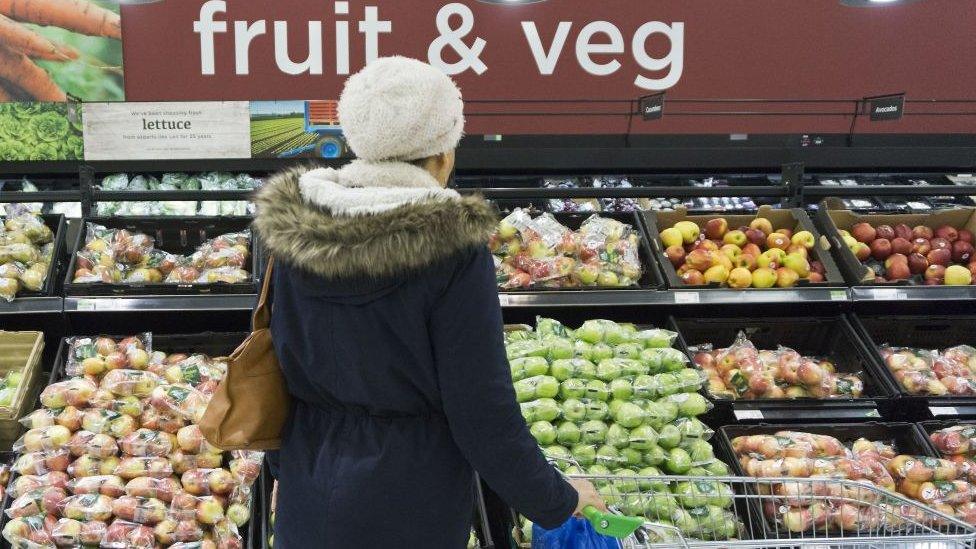
However, critics have pointed out that Sainsbury's has not laid out which products would see falls in price, over what time scale, and exactly where the savings are going to come from.
The most detail Sainsbury's has given was when Mr Coupe told the Environment Food and Rural Affairs Select Committee: "We will lower the prices of everyday items. It's 18 months in the future, it's a very competitive market. It is impossible to speculate exactly about what those items will be, but they will be the kinds of things that people buy week in, week out: tinned tomatoes, pasta."
What will it mean for jobs?
Gary Carter of the GMB union says members are "worried and stressed" due to uncertainty about their positions.
"People don't know what the merger will bring," he says. "We've had a lot of comments from people: 'Will I have a job?', 'Will I be made redundant?', 'If I have a new job, who will my new employer be?'"
Asda employees are also wondering whether they would get pay parity with Sainsbury's colleagues, who get higher wages, he says.
Mr Lim thinks it's inevitable that there will be job losses as the two firms combine operations.
"In the end it's inevitable to have fewer people working in the combined unit," he says. "The motivation [for the merger] is driving down costs."
Will the companies need to sell stores?
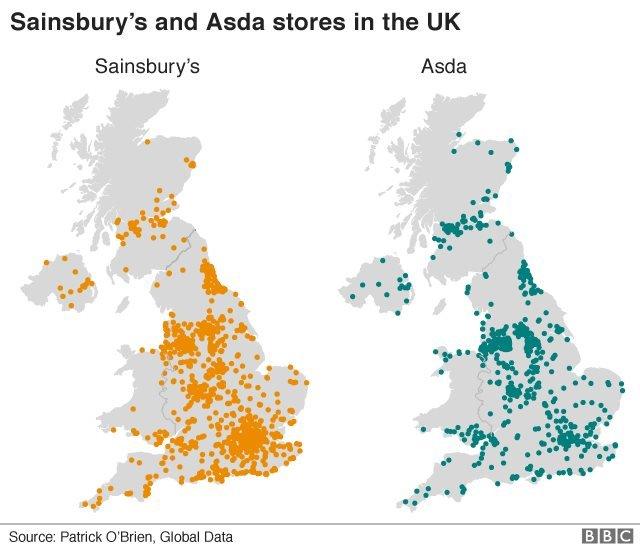
A merger between Sainsbury's and Asda, who plan to keep their brands separate, could potentially create a retail giant with more than 2,800 shops in the UK.
The CMA launched its investigation into the proposed deal in August 2018.
If it decides the merger can go ahead, it is likely to say that the two retailers must sell a certain number of stores to competitors.
But the number of stores they have to get rid of, and how profitable those stores are, will determine whether the deal will turn out to be viable.
Estimates range from between 70 to 300 stores that would have to be offered for sale.
As part of its investigation, the CMA is looking at how closely Sainsbury's and Asda would compete with each other in stores and online, and whether competition from other retailers would be stifled.
The scope of the investigation, external includes groceries, fuel, toys, electrical goods and children's clothing, and it is also looking at the impact on supermarkets' power over suppliers.
Now that the CMA has published its provisional findings, supermarkets and other interested parties will be able to comment before the final decision.
Chief executive Mike Coupe has described the CMA's analysis as "fundamentally flawed" and said the firm will be making "very strong representations" to it about its "inaccuracy and lack of objectivity".
The supermarkets could decide to appeal against the final decision, should it go against them.
- Published5 February 2019
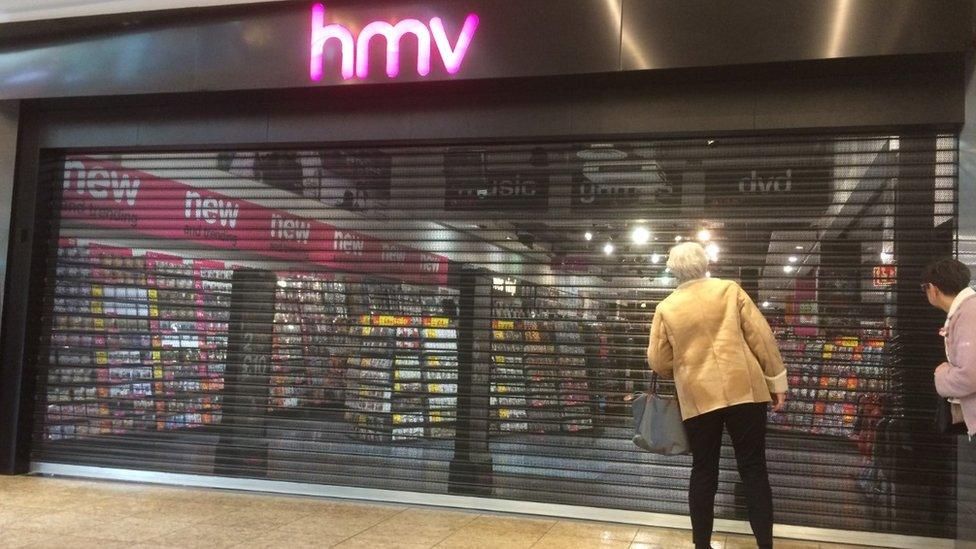
- Published5 February 2019

- Published29 December 2018
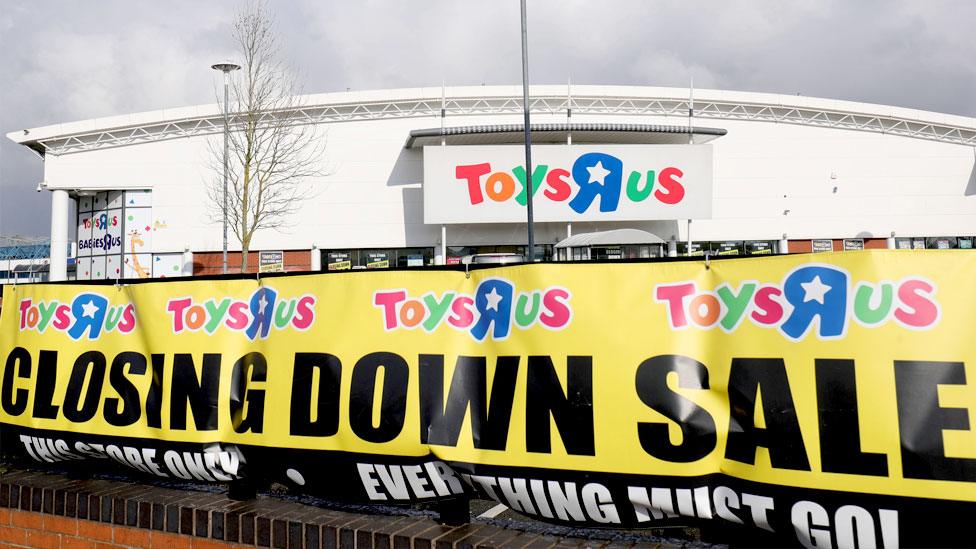
- Published12 December 2018
